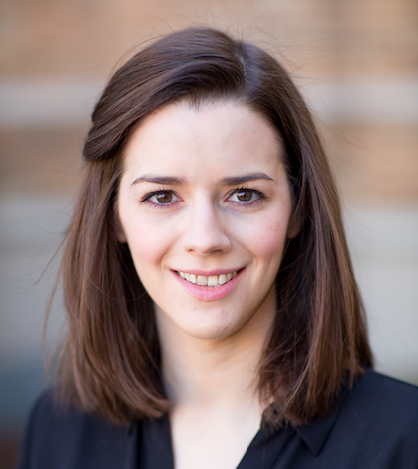Eck Institute for Global Health Fellow and Triple Domer, Rose Donohue, discusses her education journey, international research, and goals for the future. Rose is currently a PhD student in Edwin Michael's lab in the Department of Biological Sciences.
Q. Tell us about your area of study. How and when did you first become interested in the field?

A. I conduct social epidemiology research focusing on a group of common diseases which disproportionately afflict the poorest communities globally, collectively termed Neglected Tropical Diseases (NTDs). After studying African history and pre-medicine as an undergraduate at Notre Dame, I enrolled in the MS in Global Health program in an effort to integrate these interests. Learning about the wide-ranging determinants of health during this program challenged my previously-held notions about health; additionally, this knowledge sparked an interest in understanding the social context in which diseases thrive and guiding policy to more effectively address these fundamental causes of disease. As a result, I decided to continue the epidemiological research I conducted during the MS program and pursue a PhD at Notre Dame.
Q. What are you doing now professionally/academically?
A. I am currently finishing my PhD on an Eck Institute Graduate Student Fellowship in Edwin Michael’s lab at Notre Dame. During my PhD, I have conducted research on the social determinants of schistosomiasis in Tanzania and have conducted meta-analyses evaluating the extent, nature, and social determinants of helminth polyparasitism. I also conducted the quantitative analysis for a Gates Foundation-funded pilot intervention focused on improving Water, Sanitation and Hygiene (WaSH) and NTD outcomes by engaging the community at the village-level in Tanzania through an enhanced governance structure. I am currently working on a spatial vulnerability index to quantify the vulnerability of communities to soil-transmitted helminth infections in sub-Saharan Africa.
Q. What are your most memorable experiences at Notre Dame and why?
A. My most memorable experiences have been my trips abroad to conduct research in Tanzania; my summer capstone research as part of the MS in Global Health program and a subsequent trip have helped me understand the vulnerabilities and capacities of communities in which health interventions are being externally applied. Collaborating with partners at the London School of Economics and Political Science and Tanzania’s National Institute for Medical Research on this research has instilled in me a greater appreciation for both the importance of multidisciplinary research and understanding the local context in which interventions are being applied to improve health outcomes.
Q. What are your plans for the future?
A. After completing my PhD, I hope to find a position where I can conduct applied epidemiological research and use this research to guide meaningful improvements in health globally.
Q. Tell us a fun fact about yourself, or something you enjoy doing in your free time.
A. In my spare time, I enjoy traveling, reading, baking, attending classical music concerts, hiking, watching old movies, playing tennis, running, and spending time with friends and family.